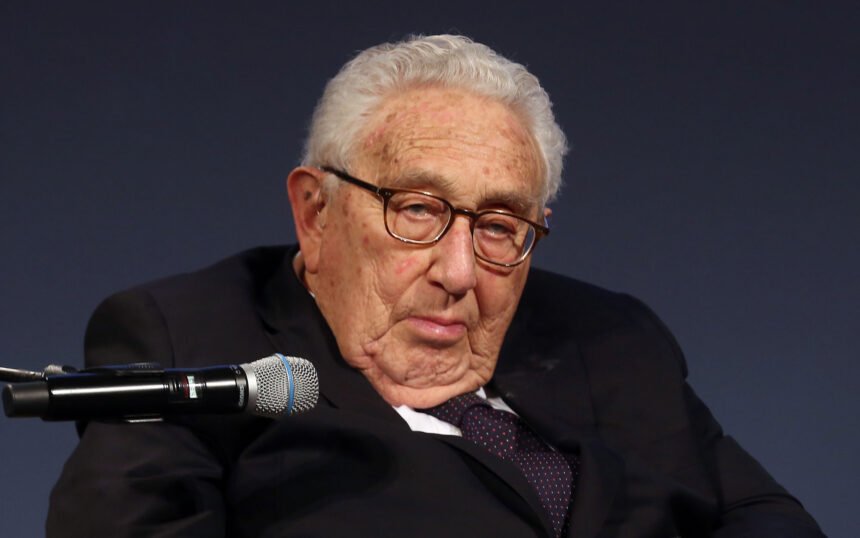In a significant move, Chinese President Xi Jinping reached out to veteran American diplomat Henry Kissinger, expressing China’s readiness to engage in discussions about halting the decline in Sino-US relations. Drawing parallels to the pivotal role Kissinger played in establishing diplomatic ties between the two countries 50 years ago, President Xi sought the influential figure’s assistance in resolving the current strained relations.
Henry Kissinger, the former US Secretary of State, celebrated his 100th birthday in May, and he has maintained a remarkable level of influence in Beijing ever since his successful “ping-pong diplomacy” in 1971. This historic event saw Communist China and its ideological mentor, the Soviet Union, compete in a friendly ping-pong competition, tilting the balance of power during the height of the Cold War.
Throughout the years, successive leaders of the Chinese Communist Party have turned to Kissinger for his valuable guidance on shaping the trajectory of China’s relationship with the United States. His insights and counsel have been instrumental in helping Beijing expand its economic and diplomatic influence on the global stage. However, in the last decade, tensions have escalated as American leaders increasingly identified China as a major threat due to its emergence as the world’s second-largest economy and a significant military power, second only to the United States.
Recognizing the urgency to address the deteriorating ties between the two nations, President Xi Jinping expressed China’s willingness to explore the “correct way” to reverse the negative trajectory. The move underscores China’s commitment to seeking dialogue and understanding to mend the strained relationship with the United States.
Kissinger’s role in establishing diplomatic ties between China and the US in 1971 is well-remembered as a turning point in modern history. His efforts laid the groundwork for a new era of engagement, cooperation, and economic development between the two nations. In the years that followed, China’s remarkable economic growth and increasing global influence demonstrated the effectiveness of this engagement strategy.
However, recent years have seen a shift in the tone of US-China relations. As China’s economic and military might continued to grow, concerns arose in the United States about the implications of China’s rise on a global scale. Accusations of unfair trade practices, intellectual property theft, human rights issues, and regional territorial disputes have contributed to the rising tensions between the two superpowers.
By reaching out to Kissinger once again, China is signaling its desire to revive the spirit of dialogue and understanding that shaped the foundations of their bilateral ties half a century ago. Amid the complexities of the modern world, China seeks to emphasize the importance of constructive communication and cooperation to address mutual concerns and prevent further escalation.
Kissinger’s involvement in the resolution of the current impasse could prove instrumental in finding common ground between the two nations. As a respected figure with extensive experience in international diplomacy, his insights and recommendations are likely to be heeded by leaders on both sides of the Pacific.
It is essential to note that the world has evolved significantly since the days of ping-pong diplomacy. The challenges facing the United States and China today are multi-faceted and demand a nuanced approach to finding solutions. While there are areas of contention, there are also areas of mutual interest that can be harnessed for cooperation.
President Xi’s outreach to Kissinger reflects a desire to prioritize stable and constructive ties with the United States while acknowledging the complexities of the current global landscape. It is an invitation to re-engage in strategic dialogue, explore areas of mutual benefit, and seek common ground in addressing shared challenges, such as climate change, regional stability, and global health.
As the world watches the potential for a diplomatic breakthrough, the involvement of an esteemed statesman like Henry Kissinger offers a glimmer of hope for de-escalating tensions and fostering a more productive relationship between China and the United States. Time will tell whether this new initiative will pave the way for a fresh chapter in Sino-US relations or serve as a reminder of the importance of continued dialogue in an increasingly interconnected and interdependent world.









